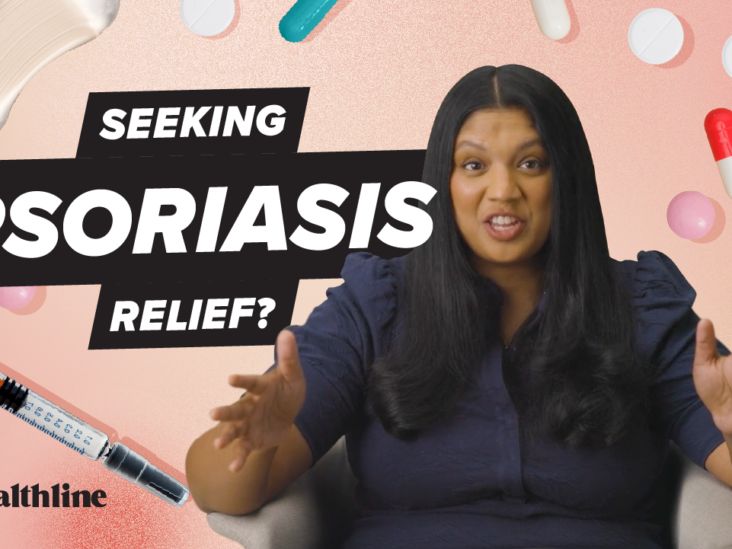Getting a psoriasis diagnosis in your 20s can complicate your life as you navigate major life transitions. Knowing what to expect and taking proactive steps to care for your condition can help improve your quality of life.
Your 20s are a period of tremendous change as you transition from school life to work life, start a new career path, and develop new relationships. You may even start family planning.
Psoriasis can complicate your 20s. You first develop symptoms during this time and have trouble getting an accurate diagnosis and effective treatment. Or you may have trouble adjusting your self-care to new routines.
Navigating through your 20s and managing psoriasis is doable with the right tools and mindset.
Psoriasis can start at any age, but evidence suggests the mean age of onset is 33. Still, one of the peak times of diagnosis occurs between the ages of 20 and 30, which means you may first start noticing signs or symptoms of the disease when you are still in your 20s.
However, primary care physicians are not always prepared to recognize and diagnose psoriasis.
According to a 2021 study, only 30% of primary care physicians screen for psoriasis subtypes, likely due to not having proper diagnostic tests. In contrast, dermatologists had a much higher rate of using diagnostic tools, such as biopsies, to recognize and diagnose different types of psoriasis.
In other words, if you do not present with plaque psoriasis — the most common type, a primary care doctor may not recognize your symptoms as psoriasis. You may go through several different attempts to treat your symptoms with limited success.
If you develop a rash or other skin lesions that don’t go away with treatment, come back, or worsen, you may want to consider seeing a dermatologist. Dermatologists are often better equipped to recognize and diagnose psoriasis.
Close friends or family may be helpful during this time and help support you in your efforts to get an appropriate diagnosis and start effective treatment.
Chronic skin conditions, like psoriasis, can have a negative impact on your quality of life. It can lead to psychological distress and feelings of self-consciousness that can impact personal relationships and your social life.
It’s also closely associated with higher rates of depression, which can impact your relationships and overall quality of life. In addition, It is also associated with:
- social stigmatization
- interpersonal relationship issues
- hypertension
- diabetes
- Crohn’s disease and ulcerative colitis
Each of the comorbidities can also negatively impact self-esteem and lead to a decrease in quality of life.
According to a
The following steps may be beneficial in helping you manage your emotions:
- get regular exercise
- try yoga, meditation, or other methods to reduce your stress levels
- open up to friends or significant others about how psoriasis affects you
- consider counseling
When socializing, you may want to limit or avoid alcohol altogether. Alcohol can
Psoriasis can also negatively impact work, which, for people in their 20s, may negatively impact career advancement.
A
Another study from 2021 gathered data from 2009 to 2020 about the impact of psoriasis and psoriatic arthritis on work. They found that people living with psoriatic disease had a higher rate of absenteeism and short-term disability compared with controls.
Navigating work can be challenging, particularly for those in their 20s because they’re not typically well-established in their careers. And it can feel uncomfortable for anyone to discuss medical concerns with an employer.
One option is to discuss psoriasis with your manager or human resources personnel. You do not need to disclose everything about your personal health to your employer.
However, it may be helpful to let your employer know what psoriasis is (if they’re not familiar) and how it may impact your health as it relates to your work performance.
If they’re aware of how it impacts you, they may be willing to make certain accommodations, such as working from home some days or flexible hours so you can keep doctor appointments.
If you’re still in school, you may find having similar conversations with professors may help them better understand the condition and your needs.
Starting a family can be a challenge if you are living with psoriasis.
Psoriasis
You may also want to consider how pregnancy impacts your symptoms and treatment options. Many doctors will recommend you stop all treatments when trying to conceive, during pregnancy, and if you breastfeed.
If you plan to become pregnant or are discussing pregnancy, you may want to discuss your options with a dermatologist or other healthcare professional about what to expect.
During pregnancy, you may notice changes to your symptoms. Some people experience a decrease in symptoms and severity, while others notice an increase. Others may not notice any changes.
Managing care will become an important part of your life. No, it should not consume everything you do, but you will likely benefit from consistent care.
Some things you can do to help manage your symptoms include:
- keeping all medical appointments
- following your doctor’s recommended treatments and let them know if something is not working well for you
- creating routines for treatment and self-care, such as applying moisturizer after bathing, exercise routines, and healthy eating
- taking steps to avoid or manage stress — a
common triggerTrusted Source for psoriasis
Psoriasis does not define who you are. It’s a non-contagious skin condition that can affect your self-esteem, relationships, and work.
Keeping up with treatment and attending follow-up appointments are essential. Taking steps to manage your symptoms, address mental health concerns, and discuss your needs with friends and family can also help.





